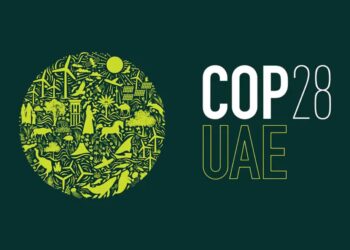By Ronnie B Katungi
‘The story of petroleum in Uganda can never be completed without acknowledging the tremendous contribution made by the Petroleum Management and Administration Institute of Norway (PETRAD),’ Reuben Kashambuzi writes in his book The Story of Petroleum Exploration in Uganda.
When Uganda was looking to kick-start its oil and gas journey, Norway, a country with a revered reputation in managing its oil and gas resources, became a training ground, a benchmarking destination, a funder and an advisor. It is accurate to say that over the past 30 years, Norway has consistently and diligently worked with every relevant Ugandan institution to ensure Uganda’s oil story is a successful one. Despite the many challenges over the years, Norway and Uganda have struck up an enviable partnership in the petroleum sector and energy sector at large.
Norway began producing oil in June 1971, after a major discovery of the Ekofisk oil field in 1969 in the North Sea. The economy of Norway grew fourfold, within ten years, after oil production started. Today, Norway has a GDP per capita of US$94,660 (Source: IMF World Economic Outlook April 2024) making it the fourth richest country in the world, on the basis of GDP (nominal) per capita. Norway’s Government Pension Fund Global (GPFG), previously named The Petroleum Fund of Norway, boasts assets worth US$1.7 trillion, making it the largest sovereign wealth fund in the world.
A Learning Ground since the 1980s
“We all know that petroleum has been a curse for so many countries. For Norway, it has been a blessing because of the advice that we got from foreigners. And I do believe that it can be a blessing for Uganda as well,” said Gunvor Skancke, the Assistant Director in the Department of Partnerships and Prosperity at NORAD.
In 1995, Uganda’s Petroleum Exploration and Production Department (PEPD) partnered with PETRAD, an institution set up by the Norwegian government, to share knowledge and experience related to petroleum management and administration. Through this partnership, Ugandan petroleum officials gained knowledge and exposure in various areas such as contract negotiations, petroleum legislation, operations management, economics and accounting. Uganda’s petroleum officials also gained access to experienced and resourceful personnel and training from Norway’s petroleum institutions. This programme played a critical role in creating the talent pool of Ugandans that are currently at the centre of managing Uganda’s petroleum industry.
‘The support from PETRAD is the single most important contribution, outside of GOU support, towards the rapid building of capacity in the oil industry in Uganda, nearly all of it in PEPD,’ Reuben Kashambuzi states in his book The Story of Petroleum Exploration in Uganda.
Strengthening Uganda’s Petroleum Administration (2006-2009)
Between 2006-2009, NORAD funded a capacity building programme to strengthen Uganda’s administration, over its newly found commercial petroleum reserves. This programme enhanced Ugandan officials’ competence, in efficient administration of the upstream petroleum sector, through planning, promoting and monitoring investments of international oil companies. The programme focused on areas such as policy development, institutional framework and administrative functions, necessary for a vibrant and equitable petroleum sector.
The Norwegian Agency for Development Cooperation (NORAD), a directorate under Norway’s Ministry of Internal Affairs, has supported Uganda’s oil and gas sector since the 1980s, providing fully sponsored courses and training to Ugandan officials, to study courses in petroleum geoscience and engineering at the National Technical University of Norway (now Norwegian University of Science and Technology) at Trondheim and various other learning institutions in Norway.
This support from the Norwegians, in terms of funding and technical advisory, was very critical in drafting the National Oil and Gas Policy for Uganda, 2008, the main guiding document of Uganda’s petroleum industry to date.
Oil for Development (OfD) Programme in Uganda (2009-2024)
Norway began the Oil for Development (OfD) Programme in 2005, in order to contribute to improved petroleum sector management, through long-term institutional cooperation with partner countries. Since its launch, the programme has been implemented in over 30 countries. By 2020, Uganda had received up to about US$34 million in funding, the highest of any other country under the OfD Programme.
The primary objective of the National Oil and Gas Policy for Uganda was, ‘To use the country’s oil and gas resources to contribute to early achievement of poverty eradication and create lasting value to society.’ Norway agreed to participate towards the achievement of this goal through the OfD Programme.
In July 2009, Uganda and Norway signed an agreement under the OfD Programme with the intention of strengthening the management of the oil and gas sector in Uganda. Under this agreement, Norway agreed to finance the OfD Programme to the tune of NOK147 million over a period of 5 years. However, the OfD Programme has continually been extended, until it officially came to a close in May 2024.
Through the OfD Programme, Ugandan entities such as the Ministry of Finance, Planning and Economic Development, Bank of Uganda, Uganda Revenue Authority (URA), Ministry of Energy and Mineral Development and the National Environment Management Authority have worked hand in hand with their Norwegian counterparts to develop capacity in several key areas mentioned below:
Resource Management: The OfD Programme facilitated the development of two new Petroleum Acts; The Exploration, Development and Production Act and The Petroleum (Refining, Conversion, Transmission and Midstream Storage) Act. Several regulations in Health, Safety and Environment (HSE) have also been developed. Through OfD, the Norwegian Petroleum Directorate has supported the Petroleum Authority of Uganda (PAU) to increase reliability and structure, regarding data management and information technology at the Data Management Centre in Petroleum House, Entebbe.
Revenue Management: The OfD Programme supported the Ministry of Finance, Planning and Economic Development to develop key provisions that focused on managing petroleum sector resources, which were incorporated into the Public Finance Management (Amendment) Act 2015.
A key aspect of these provisions was the creation of Uganda’s Petroleum Fund, which is similar to Norway’s Sovereign Fund. All the oil revenue from Uganda will be deposited in this fund, which sits in the Bank of Uganda. According to the National Oil and Gas Policy, oil revenue should be spent on non-consumables such as infrastructure, modern farming, healthcare etc.
Additionally, the Oil Taxation Office of Norway (OTO) has worked closely with URA to develop tax manuals for the oil and gas sector and also develop the necessary skills and capacity of URA staff, for effective taxation of the petroleum sector. This led to the upgrading of the Petroleum Unit in URA to a fully-fledged division.
Environment Management: The OfD Programme aided the development of the National Environment Act 2019 and the Strategic Environmental Assessment (SEA). Environmental regulations and standards, in the oil and gas sector, have also been developed and hazardous waste management systems strengthened. The OfD Programme also played a key role in the development and operationalization of the National Oil Spill Contingency Plan. These are key elements in avoiding the dreaded ‘oil curse’ that has left a trail of destruction in some of the countries where oil has been discovered.
Health and Safety Management (H&S): The Petroleum Safety Authority Norway (renamed the Norwegian Ocean Industry Authority on January 1, 2024) has supported the Petroleum Authority of Uganda, in relation to health and safety management in drilling and well operations, pipeline integrity management, occupational health and safety management, plus technical and operational safety auditing of onshore facilities. This has gone a long way towards fostering a new way of working that has improved the safety culture of the country as a whole.
In conclusion, if the lessons learnt from Norway are implemented in Uganda’s petroleum sector and the principles enshrined in Uganda’s National Oil and Gas Policy such as transparency, accountability and revenue management are held sacred, Uganda will be a bright shining star among the oil-producing countries in Sub-Saharan Africa.
Sources:
- Oil for Development Uganda 2009-2014: Final Report on Review of Norway’s Support to the Petroleum Sector in Uganda.
- The Public Finance Management (Amendment) Act 2015. Access here: https://ulii.org/akn/ug/act/2015/3/eng%402015-03-06
- The Oil for Development Annual Report 2020 by NORAD.
- The Story of Petroleum Exploration in Uganda 1984-2008, 2nd Edition 2014, by Reuben Kashambuzi.
- *According to the UIA website, PETRAD in full is the International Programme for Petroleum Management and Administration.



